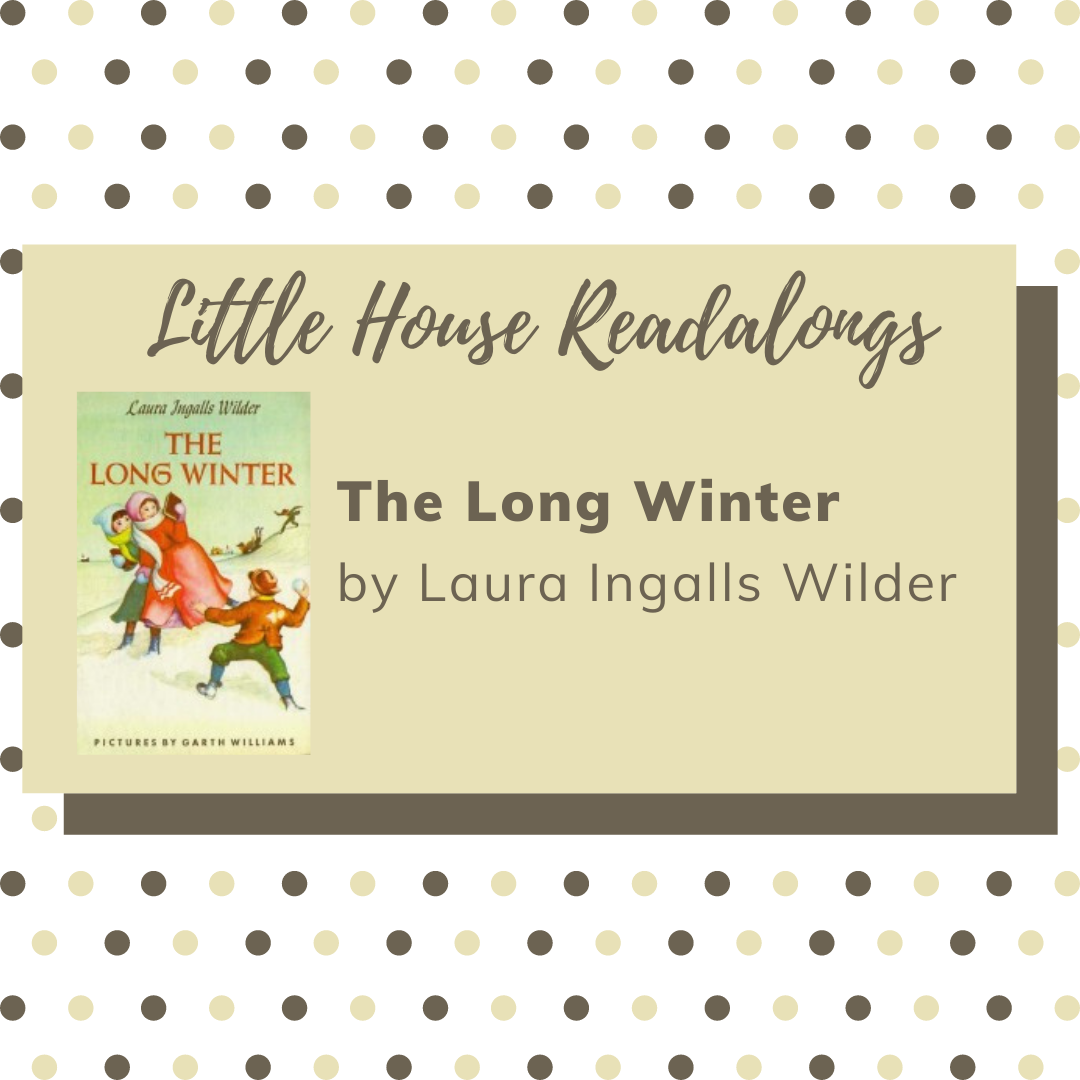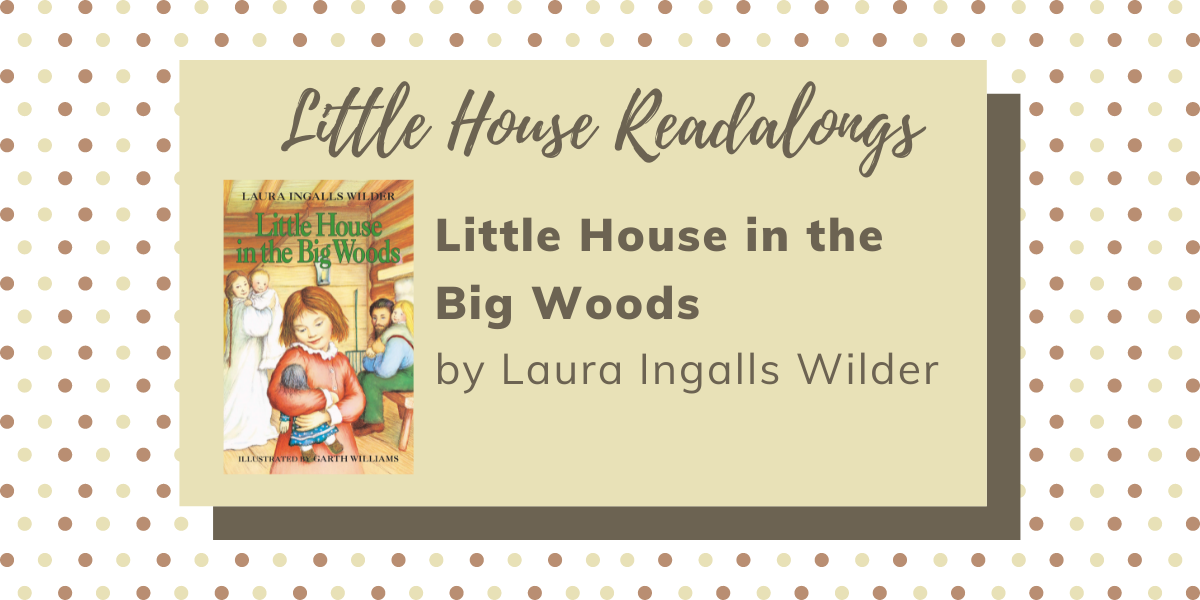
This chapter is full of images that have stayed with me ever since my first reading of The Long Winter. To me, they’re full of burgeoning excitement.
Image 1: Pa and Mr. Boast walking down the street with the Christmas barrel between them.
Image 2: The family standing around the barrel waiting to see what’s underneath that brown paper.
Image 2: The “silk shawl!” Which Ma, fittingly, gets.
Image 3: The bright yarns and embroidery silks juxtaposed against Laura’s rough, hay-bitten fingers.
Image 4. The cranberries thumping and rolling around on the bottom of the barrel when Pa lifts up the turkey.
Mr. Boast has witnessed the festivities and runs home to tell Ellie that day after tomorrow (because the turkey needs to thaw, no doubt) will feature turkey at the Ingalls home for Christmas dinner – Christmas in May.


Comments9
I wondered, but didn’t think of the need to thaw the turkey, thanks!
I love any stories with barrels like that. There was one in one of the first novels in the Caroline series, maybe it wasn’t actually a barrel though.
Also in the Pollyanna novel, for anyone who has seen the TV show when they were little, it is a nice novel as well.
I have always liked this chapter because it was a happy ending to such a trying time.
Most of us imagine a frozen turkey like we see during the holidays. This turkey probably looked (and tasted) much different than what we know. There are many wild turkeys where I live and believe me, dining on one of those is much different.
Back to my thoughts: it seemed that Laura tied up loose ends with the Christmas barrel. Baking powder to bake the biscuits (no more sourdough!); nice embroidery items for Laura, who used hers to make the Christmas presents; a silk shawl for Ma, who always gave but did not receive; and….being with friends after being alone with the family for so long.
They would have needed another day to allow the stores time to unpack the goods, stock their shelves, get what they needed while probably waiting in line awhile (everyone else in town would have been at the stores too), baking bread and biscuits, making stuffing and pies and cakes, stewing cranberries. When you’re doing all that from scratch, needing a day to do it isn’t surprising.
Alright, it’s been a long week & I’m feeling chippy and argumentative.
I am one of the faction that believes that RWL ghosted her mother’s books. I also see the politics in the books and how reality was glossed over from time to time for political effect.
So, why would LIW have her family accept the Christmas barrel? Isn’t that charity, something her family would never accept? after all, she did not include in LTOP that Mary’s schooling in Iowa was paid for by the territory ie by the taxpayers (only right that the state should cover the cost, given that there was no blind school in Dakota at the time), to avoid the appearance of the family’s accepting charity. was it because the barrel contained mostly (although not exclusively) food items that were rather exotic (turkey, cranberries)? Thoughts anyone?
Having read most of Laura’s writing and much of Rose’s, I do not believe for a minute that Rose ghosted her mother’s books. I believed she edited them, the earlier ones more heavily than the later ones, as her mother grew more seasoned and confident.
I believe Laura wrote about the Christmas barrel, just as she wrote about accepting the fur muff in the Christmas tree scene, because those were gifts from their church family, which the Ingalls family supported in turn.
I do question your conclusion that Laura neglected to mention the territory’s underwriting the cost of Mary’s schooling “to avoid the appearance of the family’s accepting charity.” Do you have a factual basis for this conclusion? Or is it just your assumption?
I think Laura made many decisions about her books based on what she thought would make the best, most moral, and most uplifting stories for children. She left out most squalid, frightening details (Mrs. Brewster’s mental illness is one of the scarier bits left in), she rearranged her timeline, she left out the family thrust upon the Ingallses during the Long Winter, and many other things.
My own guess is that the Ingalls family must have had to scrimp to send Mary to college, even with the “state” support; that Laura did indeed to have to work to make it possible, and that she left out the financial details to improve the children’s story by leaving it less complicated and more pointed, morally. That it was her own moral stance that she was trying to reinforce, and not necessarily a modern one, does not trouble me.
yes, Rev. Alden, whom they adored, had arranged the Christmas barrel and he himself had included the turkey as a personal present from himself IN EXCHANGE for their hospitality when he brought Scottie out west. I was not aware until today (when I found this website) that the state paid for Mary’s schooling but that had to be the only reason that Mary could go. It took all they could save and Laura working to keep Mary there, and they even said that when she stayed in Vinton that summer it would save her train fare home, so that shows how close to poverty the Ingalls family lived.
I would suspect too that Laura’s income from teaching and sewing helped to support the family still at home, not just going to keep Mary in college.
Pa seemed to earn very little in the way of cash money … a little carpentry, a few acres of oats and corn, (assuming the crows didn’t get them), selling the odd cow. So the money Laura earned sewing that first summer bought some nicer clothes for Mary to take to college, and her later earnings kept the the rest of the family in salt pork and shoes.
About the Christmas barrell: In Plum Creek the family seemingly had no problem to accept the gifts from the Christmas tree – neither the gifts for the girls nor those for Ma and Pa.
Maybe they felt different about State charity than about church charity – also given that Pa had obviously donated quite a bit to the Church over the years.
And then in Little Town, Ma will add to the New England Supper to raise money.
On the other hand it would have seemed really foolish, also given the Ingalls’ pride and moral standards, to refuse a gift of (hopefully, at the receipt) food in their situation.
I loved these books as a child and read them so often that Laura’s childhood memories are tangled up with mine – this website is a joy to discover as I’m obviously not the only one!
My older daughters had little interest in the Little House books (maybe too much pressure!) but over the last months, I’ve been reading them to my 7 year old son who LOVES them!! Indians, guns, fire, horses… how could I have thought they were books for girls?! We’re up to Little Town, and I’m skipping over the dressmaking… Regarding the cost of sending Mary to college, when you look at the relative prices Laura mentions in her books, it’s obvious the family could only financially cover Mary’s clothes and train fare, rather than accommodation and tuition. And if they were receiving assistance, it would be a matter of pride to ensure her clothes did them credit. I agree it simplifies the story not to go into the pedantic details.
As a mother reading the stories again, I’m terrified at the idea of sending a sheltered blind girl away to live among strangers. Poor Mary is so vulnerable – how will she even know whether she is wearing her own beautiful hemmed underwear, let alone all the other hazards a young girl could face living away from home without a family member watching over her. How could Pa and Ma know whether all the teachers were trustworthy? Anyway, at bed time tonight, I’m reading my son the chapter about her going away to college… our Little House chapter is the highlight of my day!
Comments are closed.